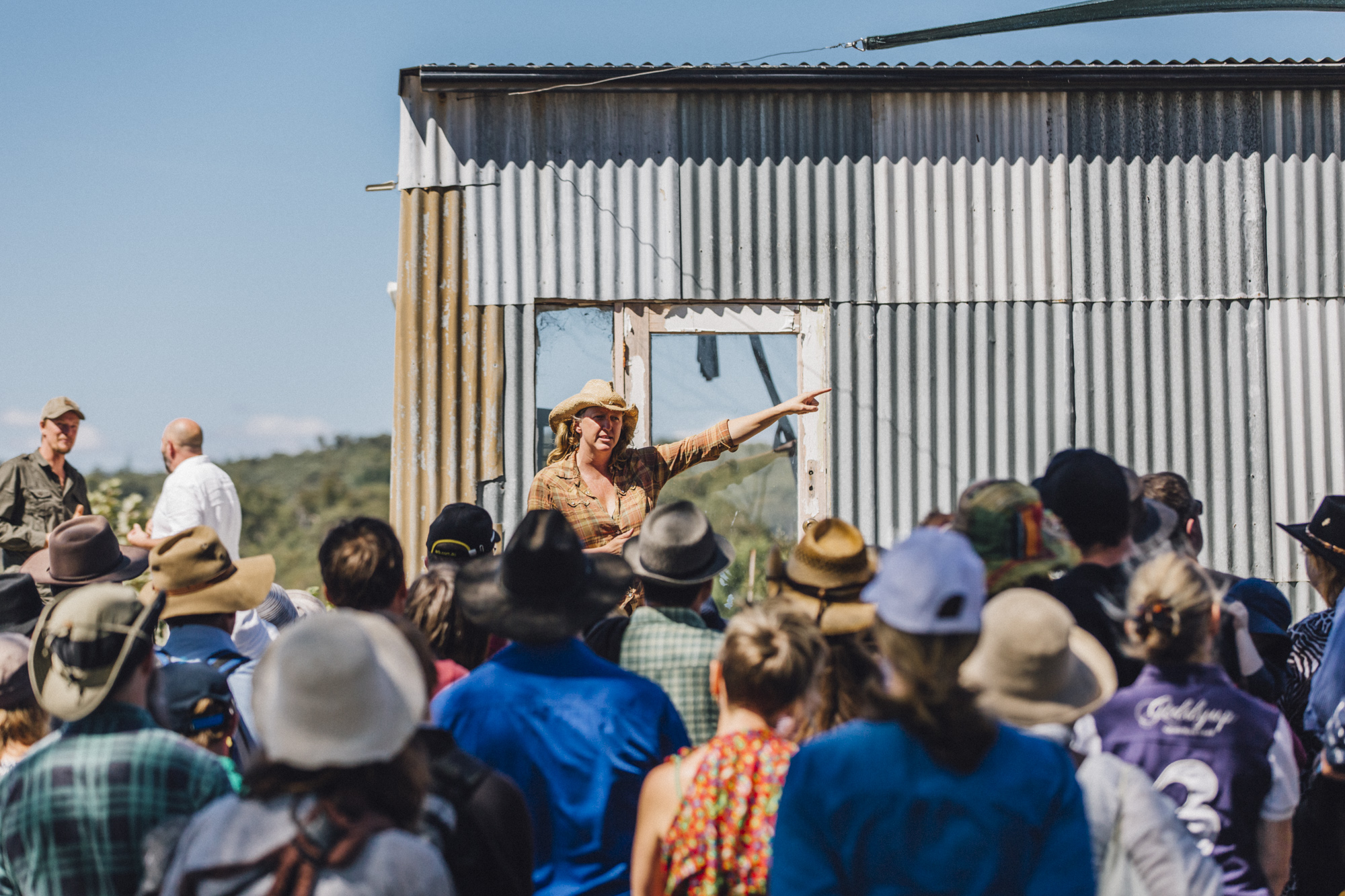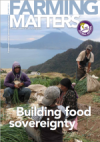Striving for food sovereignty takes many shapes and forms. From innovations in farmers’ fields to legal reform that supports farmers’ rights, each initiative contributes to a stronger movement.
Scroll down to read stories from Algeria, Australia, Switzerland and Colombia.
Algeria
Innovation keeps tradition alive
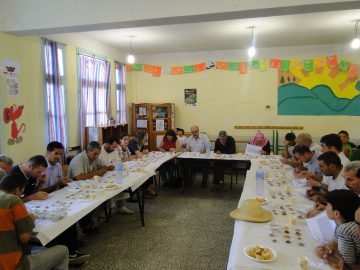
Food sovereignty in marginal areas of the Maghreb has always depended on the conservation of tree diversity such as the fig tree in the Atlas chain and the date palm in the Sahara. For centuries, maintaining high agrobiodiversity has allowed peasants to adapt to their environment, extend the maturation period of their crops, and to develop a wide variety of flavours and uses for these crops (construction, crafts, medicine, etc.). However, this diversity is becoming increasingly threatened, as traditional crops lose ground to new eating habits. To tackle this situation, peasants in M’zab, a territory in the northern Sahara Desert and fig growers in Kabyle mountains in Algeria teamed up with scientists in a partnership facilitated by BEDE (Biodiversity Exchange and Dissemination of Experiences). Together, peasants and scientists are experimenting with technological and social innovations that range from expanding uses of traditional products (for example, new uses for fig vinegar) to experimenting with biological pest control agents. These efforts don’t just pay off for peasants and researchers. By revaluing their agricultural and food heritage, people in the oases of the Maghreb not only reclaim their food sovereignty but are also at the forefront of climate change adaptation.
For more information contact BEDE (bede@bede-asso.org)
Australia
Defending small scale farms
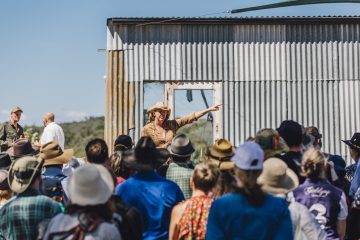
The rise of a movement of small scale farmers selling directly to consumers in Australia (and elsewhere) is being seriously challenged, and even hampered by national policy. Scale-inappropriate and outdated regulations and planning schemes discriminate against small scale farmers. For example, policy defines small, pastured pig and poultry farms as ‘intensive’ and they are subjected to the same requirements as giant sheds full of thousands of confined animals. In response to the need to defend small scale farmers, the Australian Food Sovereignty Alliance has established a Legal Defence Fund, and crowdfunded nearly AUD$70,000 over the past year. More than AUD$7,000 has already been distributed to three farms in critical need of support as regulators forced them to stop farming. For example Happy Valley Free Range received support with her forced move to a property in another shire. A legal hotline that will provide urgent help to farmers is in the planning. The next step is to collate the known regulatory and planning barriers and commence writing and lobbying for reformed, scale-appropriate legislation to support a food sovereign future where growers of ethical and ecologically-sound produce can thrive.
For more information contact Mathias Stalder (tammois@gmail.com)
Switzerland
A popular vote on food sovereignty
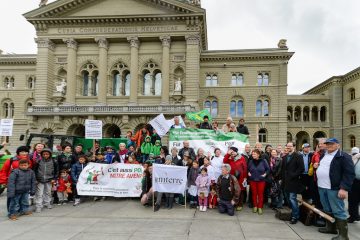
It’s official! Swiss people will have the opportunity to decide whether food sovereignty is to be included in their constitution. Swiss direct democracy allows every citizen to initiate a popular citizens initiative. In 2014, Uniterre formed an alliance with 70 like-minded organisations to do this. Two years later the first two hurdles were passed. The process began with drafting a new constitutional article. The decision was made to ensure that the text was detailed enough to avoid misinterpretation that could accommodate existing laws. Ten points are proposed and these include banning GMOs, the right to cultivate and commercialise peasants seeds and, of particular importance for the milk sector, quantity and price regulation. After the text was accepted by the Federal Chancellery, hard-working and creative volunteers collected 109,000 valid signatures within 18 months to complete the submission. The path ahead is one of building more popular support. None of the major political parties dare support our vision of alternative production and trade. As the initiative committee member Fernand Chuche proclaimed during the handover of the signatures: “Discussions about production and consumption of foods have reached a turning point. And the absence of a credible message from the government leads to engagement of the people. This is a warning and a chance at the same time.”
For more information contact Mathias Stalder (m.stalder@uniterre.ch) or www.ernaehrungssouveraenitaet.ch.
Colombia
Farming for peace
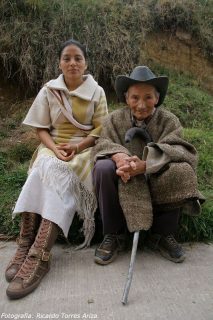
The Agricultural Workers Union of Sumapaz is leading a process to constitute a Peasant Reserve Area (ZRC) in Sumapaz, part of greater Bogotá, Colombia. Aiming to build peace at the territorial level, this was born as an agricultural initiative to protect the world’s largest ‘páramo’ wilderness area and ensure a dignified life for peasants.
The community’s development plan for the Peasant Reserve Area seeks to protect and strengthen the peasant economy through agroecological production, phasing out the use of chemicals, monocultures and extensive cattle-raising. The plan also aims to enhance local collective action, and to forge links with the urban area of Bogotá as a way to ensure food sovereignty. These strategies are based on principles of endogenous development, legal access to land and the recognition of the importance of a thriving rural economy. Importantly, it stipulates that peasant organisations should be able to take decisions autono-mously in their territory.
After a public hearing in August 2016, attended by over 850 farmers, academics and government repre-sentatives, adjustments are currently being made to the plan. Although the process has met with resistance on the part of State authorities, the peasants of Sumapaz consider the Peasant Reserve Area a crucial way to implement the peace agreements and to “transform our negative realities into a culture of peace.”
For more information read Revista Cultural Sumapaceña “El Fogón”, Edición N°4 2017, Fundación Parcela Cultural Campesina. (parcelaculturalcampesina@gmail.com)

